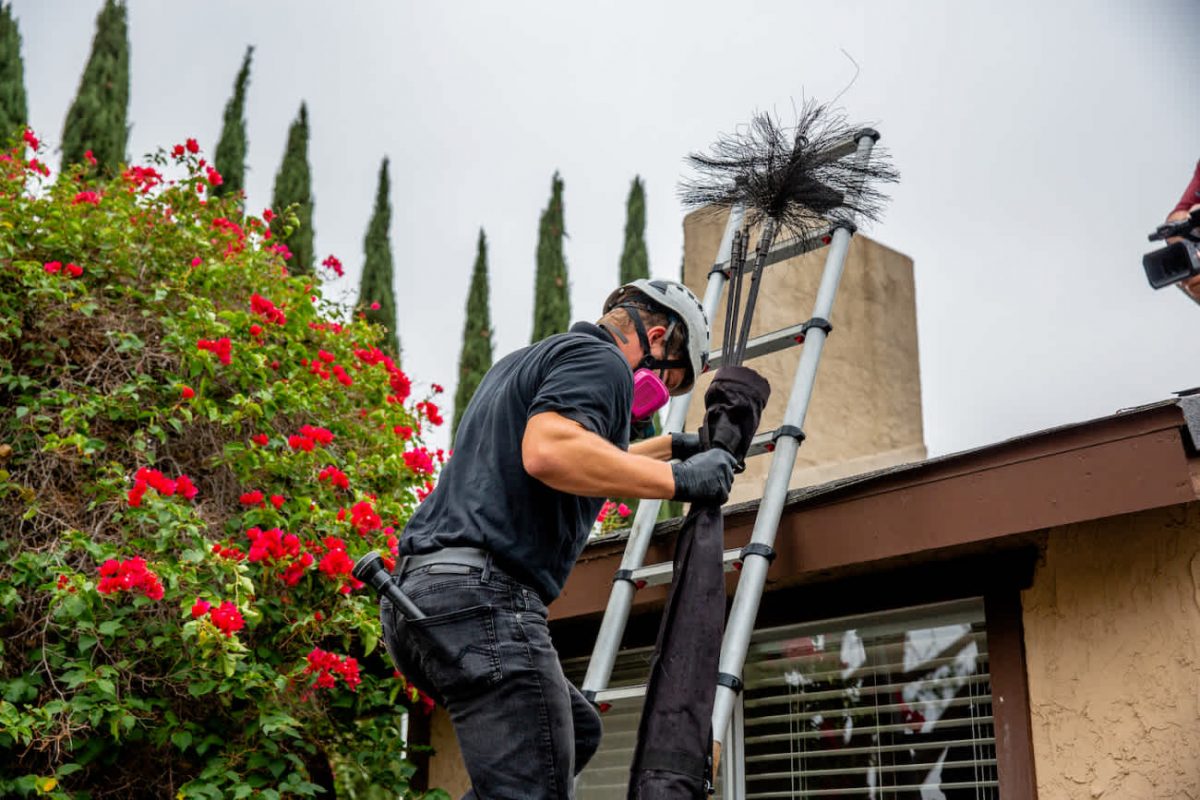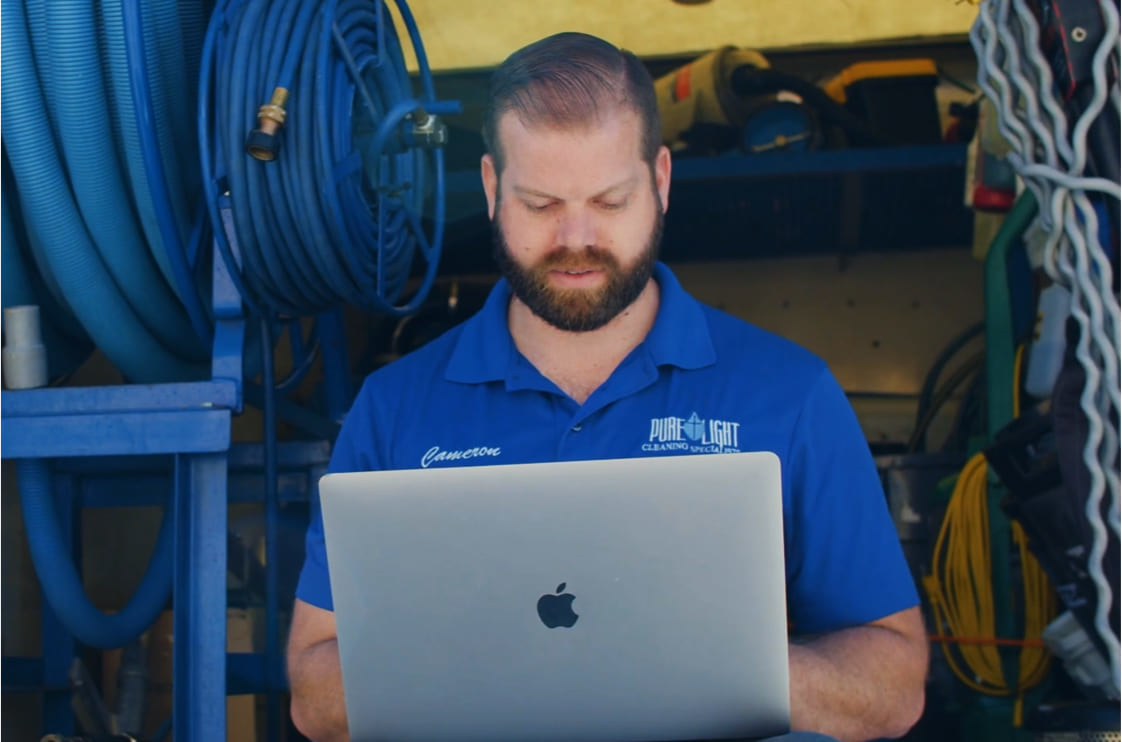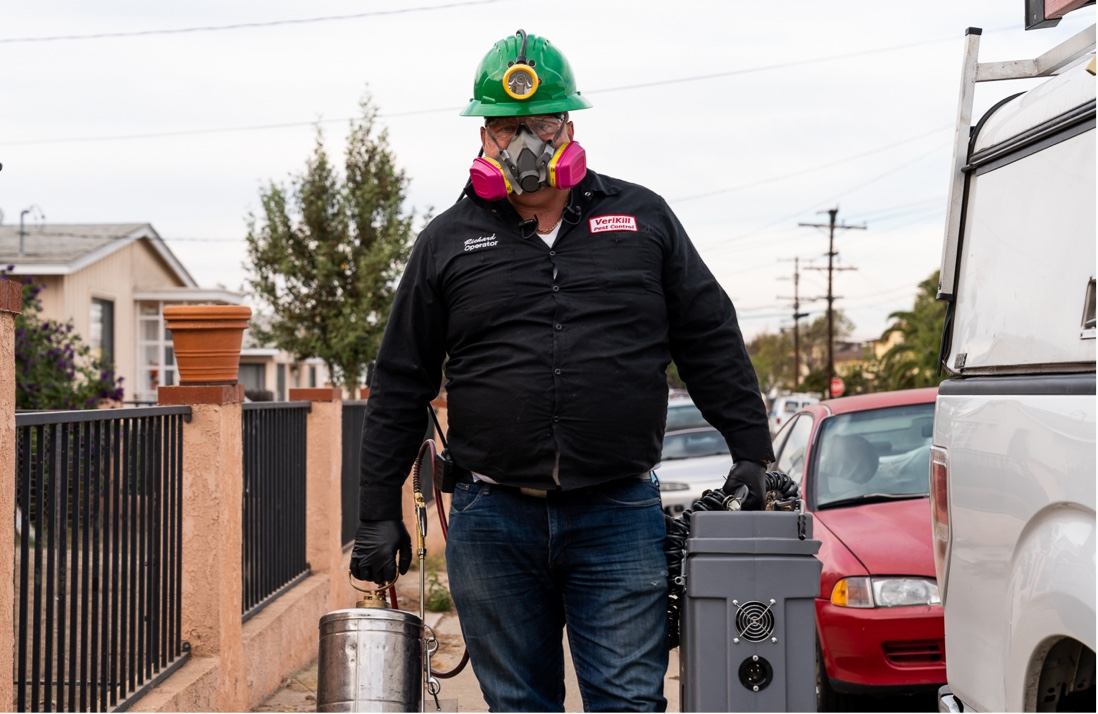
If you’re a great landscaper, you want to be able to share your skills with as many commercial businesses as possible. But unfortunately, it’s not as easy as taking on a few gigs and hoping they’ll spread the good word. You’ll need to take your efforts up a few notches to make sure that you have a steady stream of leads—and a continued revenue source—not just to keep your business afloat, but to be able to pay yourself, and your team, a handsome paycheck.
In this article, we’ll tell you what you need to know about growing your commercial landscaping business. From lead generation to creating professional bids and to providing quality work that keeps them coming back from more, we’ll tell it like it is. After all, the team at Housecall Pro wants your business to be just as successful as you do.
What is a Commercial Landscape Contract?
When landscapers get into the business, they typically focus on one particular target audience. They either choose to target the residential space, or they choose to go after the commercial space. While you definitely can try to do both, picking your niche and becoming the very best at what you do in that space is typically the best approach to get you started.
So, commercial landscape projects are typically larger in scale and more complex than residential ones. They involve contracts with businesses, property management companies, or municipalities to maintain and improve the outdoor areas of commercial properties. Depending on the location, these contracts often include services like lawn care, trimming trees and shrubs, irrigation system maintenance, seasonal planting, and snow removal.
One of the key aspects of commercial landscaping contracts is that they usually come with long-term maintenance agreements. This means you’ll be providing ongoing care for the property, which offers a stable and predictable source of income for your business.
In addition to offering steady work, commercial contracts often involve higher-paying projects due to the size and scope of the properties. You might be responsible for maintaining large office complexes, shopping centers, or industrial parks, which can require specialized skills and equipment. This not only helps you grow your business but also allows you to stand out in the landscaping market.
Commercial vs. Residential Landscaping Contracts
If you are just skimming this article, let’s break down the key differences between these two types of contracts so that you can be better informed about what you are getting into.
Key Differences in Scope and Scale
- Size of the property: Commercial contracts typically cover much larger areas, like office parks or shopping centers, while residential jobs focus on individual homes.
- Types of services: Commercial contracts often include specialized services, such as large-scale irrigation systems, snow removal, or extensive tree care, while residential work usually focuses on basic lawn care and landscaping.
- Long-term agreements: Commercial contracts usually involve ongoing, long-term maintenance agreements, while residential contracts are often one-time or seasonal.
- Complexity: Commercial landscaping projects may require more detailed planning and coordination due to the size and the specific needs of the property, whereas residential jobs tend to be more straightforward.
Pricing Models for Commercial vs. Residential Contracts
- Commercial contracts: These usually require custom bids based on factors like the acreage of the property, the scope of work (like mowing, pruning, or irrigation), and the frequency of visits.
- Residential contracts: Typically follow more standardized pricing, often based on the size of the lawn and the specific services requested (like weekly mowing or seasonal clean-ups).
- Commercial pricing: Often includes volume discounts or bundled services for larger properties and ongoing work, while residential pricing is usually simpler and based on a per-service model.
- Upfront costs: Commercial contracts may involve higher initial costs due to the need for specialized equipment and labor, while residential jobs generally have lower upfront expenses.
How to Find Commercial Landscaping Leads
Here’s the great news—you can find commercial landscaping leads just about anywhere. Any business, big or small, has grass, trees, or other natural elements on their property that needs tending to. They can either do the work themselves or they can hire it out, typically to a commercial landscaping company.
And so here’s the bad news. Okay, it’s not really bad news, but the truth is that you are going to do some work to turn those leads into qualified leads—companies that are looking for a landscaping service, or a replacement service, to do the work. With about 641,782 landscaping businesses across the U.S., there is a lot of competition.
So, without further ado, let’s get into what you need to do to find those leads so that you can qualify them and win the business.
1. Network with Local Property Managers
Networking with local property managers, real estate developers, and business owners can open doors to valuable commercial landscaping contracts. These professionals are often responsible for maintaining large properties and regularly need reliable landscaping services.
Start by attending industry events, such as property management conferences or local business expos, where you can meet potential clients face-to-face. Joining local business associations and chambers of commerce can also help you build relationships with key decision-makers.
Remember that the more people you meet, the more leads you can acquire. So, by staying active in your community and consistently following up with contacts, you can increase your chances of landing long-term contracts that can lead to steady, repeat business.
2. Use LinkedIn to Find Commercial Prospects
We talk to folks in the service industry all the time who underestimate the power of social media platforms like LinkedIn. The reason? They tell us that LinkedIn is for business professionals. They’re thinking of folks who work in the office. And that’s exactly right. So what better place to get your name out there than on a platform that is full of business owners, property managers, and so forth?
Thankfully, getting started on LinkedIn is easy—and free. And once it is set up, the world is your oyster. You can share great content, pay for targeted ads, and more. At the least, plan to get active and do the following on the platform each week to grow your visibility.
- Connect with business owners and property managers: Start by sending connection requests to decision-makers in your area, such as business owners, property managers, and developers, to expand your network.
- Engage with posts: Like, comment, and share posts from your connections to stay active and visible. Engaging with others’ content helps build relationships and shows you’re involved in the industry.
- Share relevant content: Post updates from your website, such as blog posts or case studies, or share industry news and tips related to commercial landscaping. This positions you as a knowledgeable resource in your field.
- Join industry groups: Participate in LinkedIn groups focused on real estate, property management, and commercial services to connect with potential clients and showcase your expertise.
3. Build a Great Landscaping Business Website
When you go out and network and meet new people, the chances are that they are going to do their homework on you, too. This means that they’ll head to your website to get the inside scoop. Make sure you have a thorough and professional services list and make it clear how much you charge for services. If you do not offer a flat rate per square foot, provide estimations or make it clear how customers can find out what your services will cost.
Here is what you need to make sure you have a great business website out of the gate. We’ll talk about some of these things in further detail in the tips and suggestions to come.
- Clear and Professional Services List: Make sure your website lists all the services you provide, with descriptions that explain exactly what’s included.
- Transparent Pricing Information: If you don’t have flat rates, offer price estimations or clearly explain how potential customers can get a quote.
- High-Quality Photos and Portfolio: Showcase your best work with before-and-after photos, highlighting completed projects to build credibility.
- Online Booking Tool: Make it easy for visitors to schedule consultations or services with an integrated online booking tool.
- Easy-to-Navigate Design: Keep your website simple to navigate, with clear menus and easy-to-find contact information.
- Mobile-Friendly: Make sure your website works without fail on mobile devices, as many customers will be viewing it from their phones.
- Client Testimonials and Case Studies: Include customer reviews and case studies to build trust and show proven results.
4. Focus Marketing to Niche Commercial Sectors
When focusing your marketing and advertising efforts, make sure you aren’t casting too big of a net. Targeting specific industries, like healthcare, education, or retail, can be much more effective. Each of these sectors has unique landscaping needs, whether it’s maintaining outdoor spaces for schools or ensuring the safety and aesthetics of hospital grounds.
By tailoring your marketing campaigns to address these specific requirements, you’ll stand out from competitors offering more general services. Highlighting your specialized expertise shows potential clients that you understand their challenges and can provide the exact solutions they need.
5. Find Commercial Businesses in Local Directories
While the Yellow Pages may no longer be a big yellow book that sits on your desk by your phone, there are some old-school methods to lead development that can pay off in a big way. You’ll just approach it a bit differently than you did in the past.
Local online business directories and Chamber of Commerce listings are super valuable tools for finding commercial clients. Scroll through these directories to identify potential leads, such as businesses in need of landscaping services. Additionally, don’t forget to list your own business in these directories. Keep your profile updated with accurate contact information, services offered, and recent projects.
6. Use Online Platforms to Find RFPs (Requests for Proposals)
Using online platforms like BidClerk, government websites, or local procurement sites is a great way to find open bids for landscaping services. These platforms list Requests for Proposals (RFPs) from businesses, municipalities, and other organizations in need of landscaping work.
To increase your chances of winning contracts, focus on submitting strong, detailed proposals. Be sure to clearly outline your services, pricing, and timeline, while also highlighting your experience and any past successes with similar projects. Understanding the bidding process—such as deadlines, submission requirements, and evaluation criteria—will help you stay competitive and improve your chances of landing valuable contracts.
7. Cold Outreach and Direct Sales
While you might not like the idea of pounding the pavement and going door to door to make introductions, the truth is that it works. And, for landscapers, paying a visit to the company itself vs. a phone call can pay off in a big way.
Here are some tips to help you with your direct outreach strategies.
- Visit businesses in person: Stop by local commercial properties and introduce yourself to the decision-makers. Bring business cards, brochures, or even a small portfolio to showcase your work.
- Follow up after visits: After making a personal introduction, follow up with a phone call or email to keep the conversation going and remind them of your services.
- Offer a free consultation: During your visit, offer a no-obligation consultation or property evaluation to show potential clients how you can improve their landscaping.
- Be consistent: Cold outreach works best when done consistently. Make it a regular part of your routine to visit new businesses and follow up with previous contacts.
Get In Touch: 858-842-5746
Let us earn your trust
On average, Pros increase monthly revenue generated through Housecall Pro by 50% after their first year.
See plan options and feature breakdown on our pricing page.
8. Social Media and Paid Advertising
Social media has taken the world by storm. And, about 68% of U.S. adults use social media. Many of them use it every day. Since you need to be where your customers are to try and get eyeballs on your business, this means that you need to be on social media, too.
The best social media platforms for landscapers, aside from the B2B platform we mentioned earlier from LinkedIn, are Facebook and Instagram. You can promote your business quite well on both of these platforms with regular insights, engaging images of well-manicured business landscapes, and more.
If you aren’t set up on these channels yet and actively engaging, now is the time to get started. And once you are set up, you can leverage paid advertising that targets the types of businesses you are trying to reach.
9. Offer Maintenance Contracts
Long-term maintenance contracts are a smart move for both commercial clients and landscaping companies. For businesses, these contracts provide consistency and peace of mind, knowing their outdoor spaces will be regularly maintained without the hassle of scheduling individual services. This keeps properties looking their best, creating a positive impression on customers and employees.
For landscaping companies, maintenance contracts offer predictable, steady revenue, helping with cash flow and long-term planning. Since 82% of small businesses fail because of cash flow issues, that makes these contracts quite lucrative. Plus, ongoing relationships with clients increase the likelihood of referrals and add-on services, making these contracts a win-win for both parties.
10. Create High-Quality Video Content
Video sells. Hands down. An estimated 93% of consumers say that video content influences a buying decision. And that’s no different in the commercial space. Videos give you a chance to express your pride in your business and let customers know who they’ll be working with. Plus, video can go a long way on platforms like Instagram and Facebook, not to mention on your website—if you don’t have a landscaping business website, now is the time to get one.
Getting started with video content is easier than you might think.
- Start with your smartphone: You don’t need fancy equipment to create great video content. A modern smartphone with good lighting and clear audio works well for capturing high-quality footage.
- Plan your content: Outline key points you want to highlight, such as showcasing your team, before-and-after shots of projects, or a tour of completed work to demonstrate your skills.
- Keep it short and engaging: Aim for videos that are one to two minutes long, keeping viewers’ attention with a clear message and visually appealing shots.
- Edit with easy-to-use software: Use simple editing tools like iMovie or Adobe Spark to polish your video before posting it online.
- Post consistently: Regularly upload new videos to your website and social media platforms to keep your audience engaged and attract new clients.
11. Leverage Case Studies and Your Portfolio
Be sure to take quality photos of your completed projects and ask your best customers to participate in a case study or testimonial. Purchasers are highly influenced by others. So, if your customers have a great experience with your services, ask them to help you talk about it. Once you have that information captured, here is how to share it.
- Feature case studies on your website: Create a dedicated section on your site to showcase case studies and highlight successful projects, detailing the problem, solution, and results.
- Use before-and-after photos: Share visually compelling before-and-after shots in your portfolio to demonstrate the transformation your services provide.
- Share testimonials on social media: Post customer testimonials or case study highlights on platforms like Facebook, LinkedIn, and Instagram to build credibility and attract new clients.
- Include in proposals: Add relevant case studies and testimonials to your bids and proposals to strengthen your pitch and show real-world results.
- Incorporate into email marketing: Share case studies and photos in your email newsletters to keep clients and leads informed about your work.
Tips for Landing More Commercial Landscaping Maintenance Contracts
Following the suggestions we shared above will definitely pay off in helping you get more leads. But now, you need to take those leads and convert them into sales. And it doesn’t happen automatically. Here is what to do to grow your conversions and move leads from your pipeline to your bottom line.
- Thoroughly Assess the Property in Person: Avoid the urge to rely on apps like Google Earth to assess a property and provide an estimate. You’ll likely miss something, and your prospective customers might think you didn’t care enough to evaluate the property properly. Walk the property yourself to measure accurately, identify any problem areas, and fully understand the project’s scope.
- Understanding Your Costs and Margins: Know your labor, equipment, and material costs before bidding to prioritize profitability.
- Create Detailed and Professional Proposals: Submit comprehensive proposals that clearly outline services, timelines, and transparent pricing to set yourself apart from the competition. Remember what we said about all the other contractors out there? They’re all vying for this business’s attention, too.
- Prove Your Reliability with Case Studies: Use past project successes and client testimonials to instill confidence in potential clients.
- Offer Competitive and Flexible Pricing: Provide tiered maintenance packages and flexible pricing options to fit a variety of client budgets and needs.
Secure More Commercial Landscaping Contracts With Housecall Pro
As your business starts to grow, you’ll find the need to rely on automation and technology to manage all those office-related tasks. At Housecall Pro, we specialize in landscaping business software that can help you manage all of those key components of your business.
From invoicing assistance to scheduling software, we can help you with everything you need to manage your business’s back office. Sign up for your free 14-day trial today.






